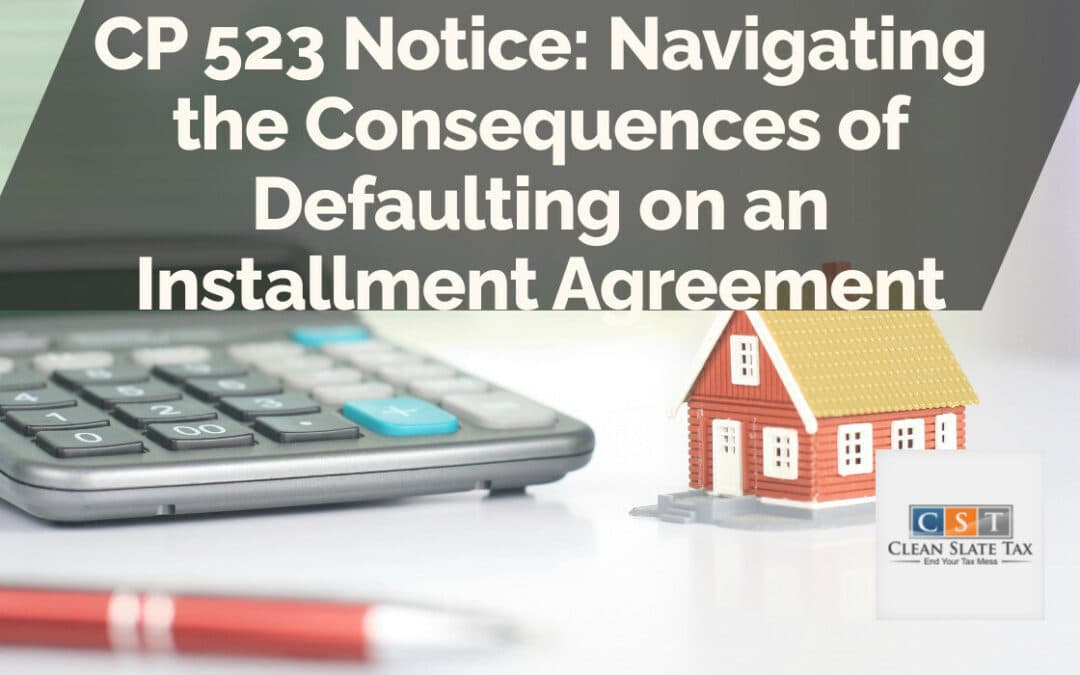Understanding the CP 523 Notice
A CP 523 notice from the Internal Revenue Service (IRS) is a document no one wants to receive. It signifies serious tax obligations that require immediate attention. This document is sent by the IRS to inform a taxpayer that they have defaulted on an installment agreement. While receiving this notice can be stressful, understanding it is crucial to navigate your situation effectively.
Why Do I Receive a CP 523 Notice?
The IRS sends a CP 523 notice when a taxpayer fails to meet the terms of their agreed installment payment plan. This entails the violation of one or more terms, including missing a payment, submitting a tax return with additional liability or due to the supply of inaccurate information during the agreement’s initiation.
Understanding the Consequences of Defaulting
Defaulting on your installment agreement, as reflected by the issuance of a CP 523 notice, can lead to severe consequences. This might include the IRS applying a tax lien against your property, a levy being placed on your wages or bank accounts, or seizure and sale of your physical assets.
How Can I Avoid Getting a CP 523 Notice?
To avoid receiving a CP 523 notice, ensure that you strictly adhere to the terms of your agreed installment plan with the IRS. Regular and timely payments are crucial as is submitting all required tax returns by the agreed deadline.
What to Do Upon Receiving a CP 523 Notice?
-
The first step is to review the notice carefully and understand the reasons for the default that have been highlighted by the IRS.
-
Second, consult with a tax professional who can guide you through the process and help determine the best course of action. This could involve either reinstating the agreement or negotiating new payment terms with the IRS.
-
Third, ensure that you communicate your plan of action to the IRS before the given deadline stated in the notice to avoid further penalties.
Frequently Asked Questions
Can a CP 523 Notice Be Disputed?
A CP 523 notice can be disputed if you believe that the IRS has made an error in issuing the notice or if there has been a change in your financial situation. However, it is vital to consult with a tax professional to understand your rights and possible strategies.
What is the Timeframe to Respond to a CP 523 Notice?
Typically, you have 30 days to respond to a CP 523 notice. If no action is taken within this timeframe, the IRS can proceed with collection actions.
Remember, receiving a CP 523 notice does not signify the end of the road; instead, it is a call to action. Take the necessary measures to address the notice and resolve the situation promptly to avoid any possible severe consequences in the future.





